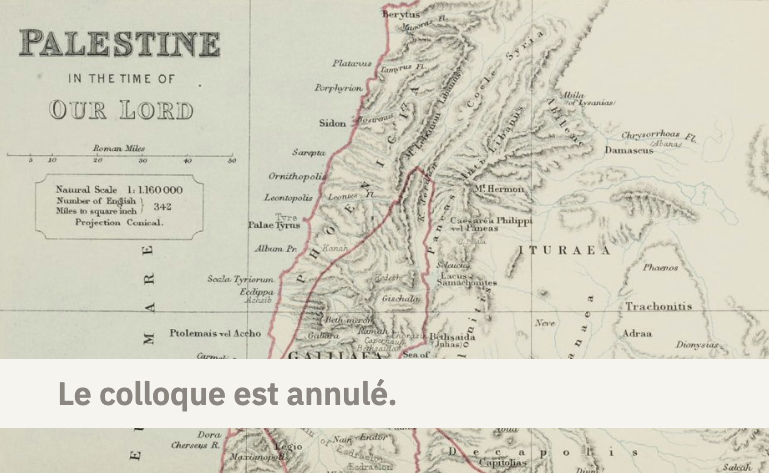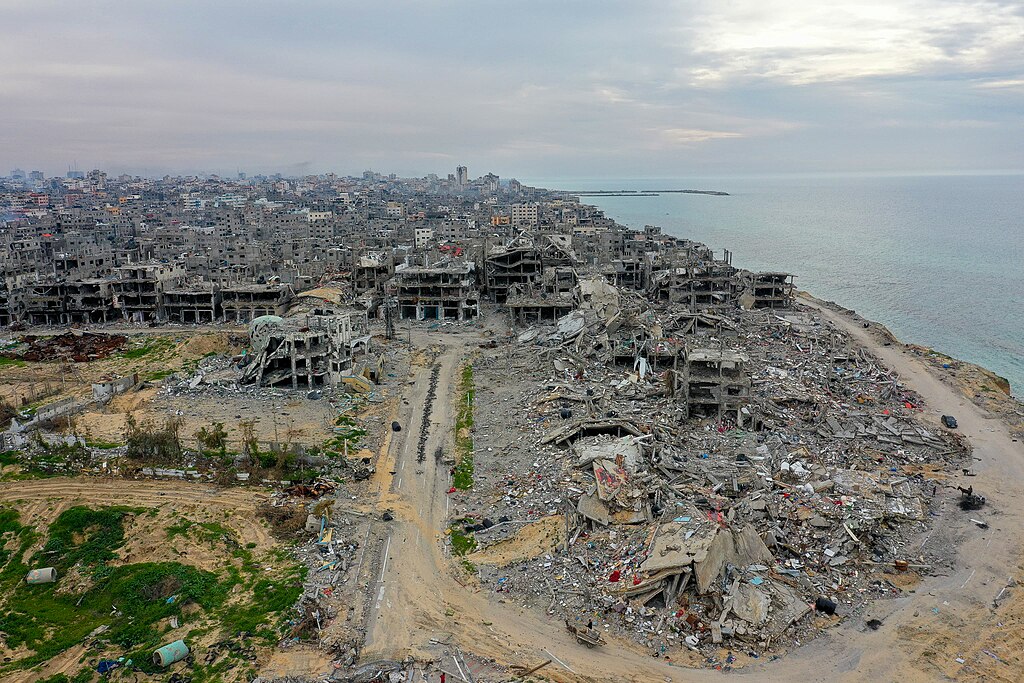Debatte aims to share knowledge – generously and critically, resisting the authoritarian drift with nuance. It draws on ideas and discussions from the Alliance for Critical Scholarship in Solidarity (KriSol). It offers three genres: Picks are short, introductory texts or commentaries on articles by other authors and published elsewhere, which we consider important and want to share with a wider public. Drops recommend publications by KriSol members. Posts are longer contributions that we write ourselves or ask others to write – reflections, reports, reviews, letters, short reports, comments, interviews …
-
Countering intimidation
Benjamin Schütze writes in the taz about an attempt at censorship by an antisemitism commissioner and how German “reasons of state” are being used to establish authoritarian anti-antisemitism. Society must decide how to deal with this.
-
The imperial Federal Republic of Germany
Kai Koddenbrock and Carolin Fiete Norina Voß have published their research findings in “New Political Economy” on the shifts in German security, economic, and foreign policy in recent years, from an imperialism theory perspective.
-
Critical international law, in solidarity
In an interview for the London Review of International Law, international law scholar Nahed Samour reflects on “doing international law” during genocide. She proposes a pragmatic, positivist-realist approach: to engage critically with international law’s implications in structural injustice, and at the same time to advance its liberatory and egalitarian aims, e.g. by advocating for the application of the Genocide Convention.
-
Eight measures that universities and academics can take
Ilyas Saliba has published an article in the journal “Wissenschaft & Frieden” (“Science & Peace”) about the consequences of the erosion of academic freedom for open society and how Germany is affected by it. He proposes eight concrete measures that scientists and universities can use as a guide.
-
Knowledge under general suspicion
This article was originally published in French under the title “Studying the Arab and Muslim world—a risky profession?” in Club de Mediapart. It concludes: behind the cancellations of academic events on Israel/Palestine lies a general disregard for academic freedom, but above all a particular contempt for research on and researchers from the “Middle East”.
-
India’s undeclared state of emergency
Ernst Fraenkel’s “The Dual State” (1938) lends itself to the analysis of today’s processes of fascization. Julia Eckert picks up on a book by Arvind Narrain, published in 2021, which applies the concepts of the “prerogative state” and the “normative state” to contemporary India and advocates a strategy of “constitutional resistance.”
-
Colonial versus anti-colonial transgressions of the civilian–combatant divide
To further enrich the discussion on “genocide”/“war,” Jevgeniy Bluwstein “picks” an article by Nicola Perugini that addresses the distinction between civilians and combatants under international law. Perugini shows from a decolonial perspective why international law drives both sides – anti-colonial resistance and colonial violence – to transgression.
-
The terms “war” and “genocide” should not be played off against each other.
Here is another contribution to the debate on the terminology of genocide and war (following the “pick” on Dirk Moses’ “Problems of Genocide” from May 2025). From the perspective of Peace and Conflict Studies, we argue that the mass violence in Gaza is extensively documented: even if the legal verdict on genocide is still pending, the “genocidal war” has long been proven. Using the concept of war, we can insist that political consequences must be drawn on this basis alone, for example, in relation to the Israeli government.
-
Federal Ministry of Education and Research ignores expert opinions when awarding funding
The research platform Correctiv has discovered that the Federal Ministry of Education and Research is funding a company owned by Ahmad Mansour with almost nine million euros, even though experts commissioned by the ministry itself explicitly advised against it – and this at a time when funding for science and culture is being cut everywhere else.
-
Disgust and eroticism of the new fascist body
Dagmar Herzog’s book: “Der neue faschistische Körper” (The New Fascist Body) expands current theories of fascism to include the intersectional category of disability. Fascism today, as in the past, makes racism “sexy” and produces, exploits, and links the sexualized charges of reproduction and disgust toward vulnerable bodies. Here, the fascist “co-option” of the postmodern contestation against truth turns out as a challenge for theory formation.
-
Academic freedom – for whom, for what, and to what end?
The “Zeitschrift für Medienwissenschaft” (Journal of Media Studies) is hosting a debate on academic freedom initiated by Kathrin Peters and Katrin Köppert. The contributions take as their starting point the reactions of universities to the genocidal war in Gaza.
-
Antisemitism training at US universities
The Jewish-American publication platform ‘Forward’ took a closer look at an “anti-bias” video with which the Northwestern University in Chicago is attempting to comply with Trump’s regulations on the alleged fight against anti-Semitism. The video, which is mandatory for all students, violates basic scientific principles and also labels Jewish anti-Zionists as antisemites.
-
Media analysis: Hierarchies of death
Jannis Grimm, Justus Könneker, and Mariam Salehi study, recently published in the peer-reviewed, interdisciplinary journal “Peacebuilding”, compares German media coverage of Palestinian and of Israeli fatalities in the first six weeks after October 7, 2023. As expected, Palestinian lives count for far less than Israeli lives.
-
“Never again” must apply universally
In his article for the magazine südlink, Alexander Schwarz denounces the German government for undermining fundamental principles of international law and demands that “Never again” be universally applied.
-
Political conditions for the possibility of science
How political is science? How political should it be? When must it become political? In her guest post on the Wiarda blog, Hanna Pfeifer addresses these questions and the boundaries between political activism and scientific activity.
-
How the recognition of Palestine is being debated in France
“It’s as if they’re saying to us: Now I recognize you, your name is Palestine, you can disappear,” claims Palestinian journalist Rami Abou Jamous, who is currently trapped with his family in Gaza in the hell of an ongoing genocide. It seems obvious that recognizing the Palestinian state will not stop the genocide, occupation, and apartheid. But perhaps it is even worse. Or perhaps not? In France, a debate has begun on the risks and opportunities of the recognition policy under international law.
-
The Nova Exhibition – immersive entertainment and deceptive unambiguity
On the second anniversary of October 7, the traveling “Nova Music Festival Exhibition” is set to open in the former Berlin-Tempelhof Airport building. Naomi Klein and Ben Ratskoff have written insightful texts on dealing with trauma, the affective strategies and political implications of exhibitions and films that seek to make the horror of the massacre “relivable.” The deliberate collapse of critical distance carries the risk of aestheticizing the trauma and of further dehumanization.
-
International Law in times of increasing authoritarianism
In an interview with the European Center for Populism Studies (ECPS), Professor William Schabas (Middlesex University), one of the world’s leading experts in international criminal law and genocide studies, clearly outlines the international legal situation with regard to Gaza and the complicity of parts of the international community, above all the US and Germany.
Selected and offered by KriSol – A Space for Debate
The Editorial Collective currently consists of Marion Detjen, Julia Eckert, Isabel Feichtner und Christian Strippel.



